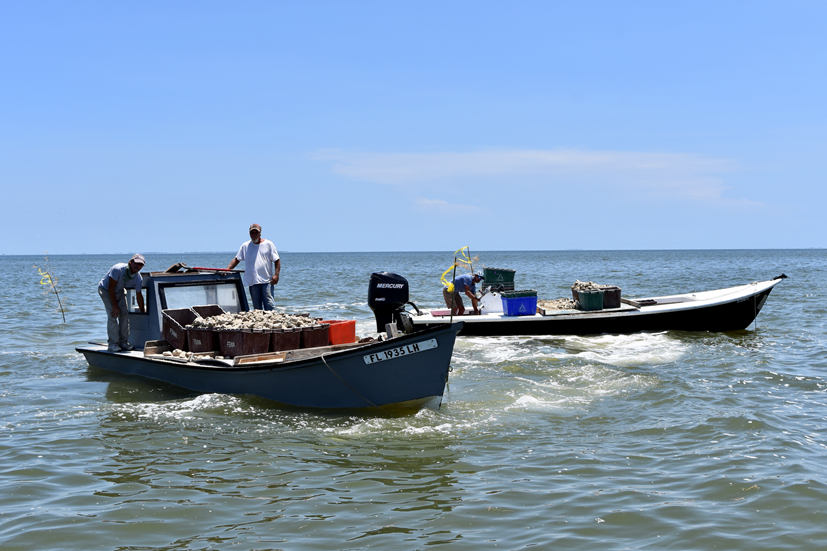 The effort to help Florida’s troubled Apalachicola Bay and its famous oysters cleared a key hurdle on November 16th. The Apalachicola Bay System Initiative (ABSI) Community Advisory Board (CAB) unanimously adopted the framework document for the Apalachicola Bay System (ABS) Ecosystem-Based Adaptive Management and Restoration Plan (the Plan). Members of the CAB represent stakeholders whose lives are inextricably tied to the health of the Apalachicola Bay System, businesses that depend on the economic stability of the county, and the agencies responsible for the management and conservation of the region.
The effort to help Florida’s troubled Apalachicola Bay and its famous oysters cleared a key hurdle on November 16th. The Apalachicola Bay System Initiative (ABSI) Community Advisory Board (CAB) unanimously adopted the framework document for the Apalachicola Bay System (ABS) Ecosystem-Based Adaptive Management and Restoration Plan (the Plan). Members of the CAB represent stakeholders whose lives are inextricably tied to the health of the Apalachicola Bay System, businesses that depend on the economic stability of the county, and the agencies responsible for the management and conservation of the region.
Community leaders, working with state agencies and scientists, will begin evaluating the Plan Framework (click for downloadable PDF) in early 2022. This document comprises five goals that address ecosystem restoration, oyster fishery management, Plan implementation, community engagement, and other recommendations outside the specific scope of the ABSI including economic. Within each goal are a number of strategies and actions that have been proposed to accomplish the goal. Each of these elements will be evaluated fully by the CAB with input from the public, and either accepted, changed, or rejected to create the final Plan. The evaluation process will integrate ongoing research generated by ABSI and other scientific sources.
Top priorities in the Plan include:
- Researching the best materials and locations to build or expand existing oyster reefs, and determining the area of habitat needed to maintain a viable oyster population and sustainable fishery.
- Identifying monitoring needs to assess the health of oyster populations and detect changes in environmental conditions and habitat quality over time.
- Evaluating a suite of management approaches, such where, when, and how sustainable harvesting can resume and be maintained. Management strategies will be adaptable and will incorporate data from monitoring and stock assessment programs.
- Continuation of an open and transparent process for the development of the Plan with many opportunities for stakeholder engagement and input
- Developing and expanding shell recycling programs, including ways to make it financially viable into the future. Learn about the history of shell recycling in Franklin County here.
The final Plan, which will be produced at the end of the evaluation process, will use science to guide oyster management and restoration strategies, and requires working closely with fishermen and other local stakeholders. Immediate efforts will focus on assessment of oyster resources, enhancing oyster reefs, and finding the best ways to kickstart oyster larvae settlement and growth. Community engagement and input is critical to the success of the Plan. Once complete, natural resource agencies and restoration entities will be called upon to adopt and implement the Plan. Community engagement efforts will be increasing over the next year as project leaders communicate the ABSI science and learn from the community. Additionally, a subset of the project team will be working to identify short and long-term funding opportunities to help sustain restoration activities.
ABSI scientists will be monitoring progress on the experimental restoration projects and will use that data, along with results from the mapping and modeling, for large-scale restoration and management. To learn more about the ABSI project, visit www.marinelab.fsu.edu/absi and sign up for their bi-monthly email newsletter here.
